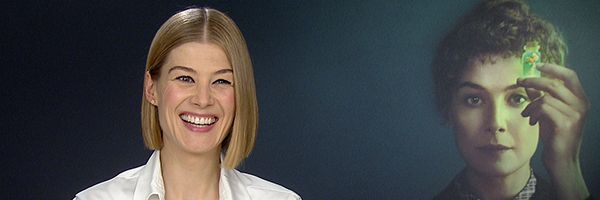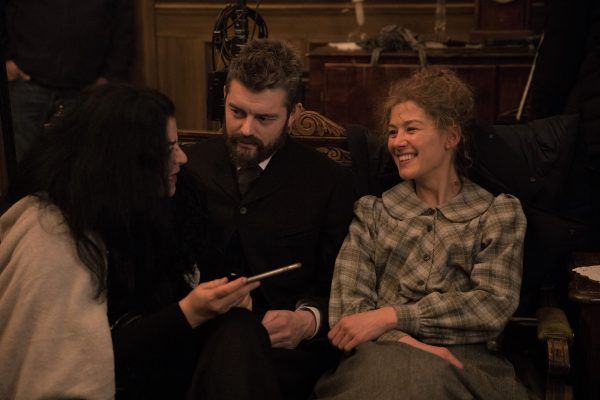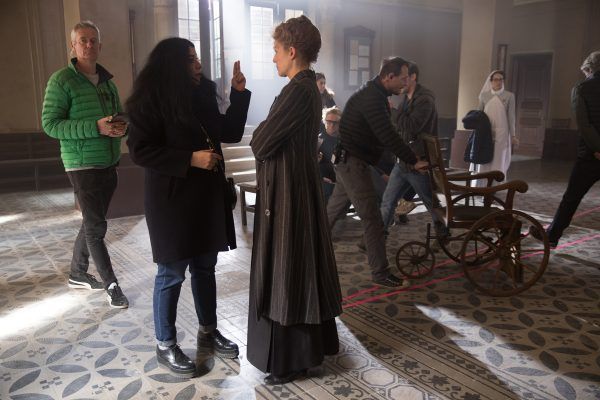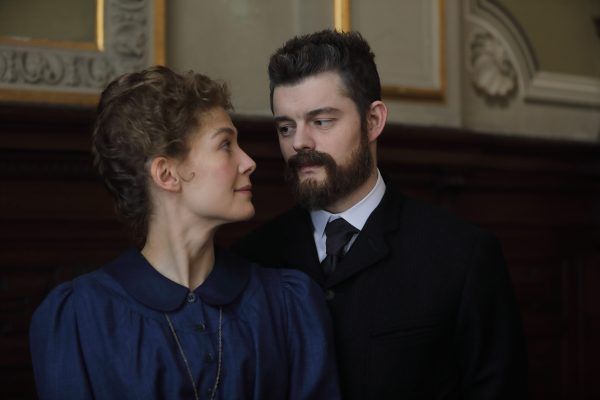-
When you think about what visionary Polish physicist and chemist Marie Curie accomplished during her extraordinary life, it’s impossible not to be impressed. Not only did she (with her husband Pierre) discover the elements Radium and Polonium, coin the term “radioactivity" to describe the emission of uranic rays, and become the first woman to ever win a Nobel Prize and hold a professorship at the Sorbonne, she did it well over a hundred years ago when it was even harder for a woman to enter the field of science. In addition, her work in the field of x-rays led to a second Nobel Prize for Chemistry in 1911 and helped saved numerous lives during World War I thanks to ambulances with x-ray equipment.
With all the she accomplished, it makes sense that her life has been portrayed on TV and the movies many times. In director Marjane Satrapi’s Radioactive, which is now streaming on Amazon Prime Video, Rosamund Pike stars as Curie and the film does a great job highlighting the key moments in her life and showing how hard Marie and Pierre Curie (Sam Riley) had to work to change the face of science forever. Radioactive also stars Aneurin Barnard, Simon Russell Beale, Katherine Parkinson, Sian Brooke, and Anya Taylor-Joy. The screenplay is by Jack Thorne and based on the book by Lauren Redniss.
Earlier this year, before the pandemic struck the planet, I sat down with Rosamund Pike in Paris to talk about the film. She talked about some of the incredible things she learned while preparing for the project, how she keeps playing people named Marie and why she enjoyed playing Marie Curie in Radioactive and Marie Colvin in A Private War, what draws her to playing certain characters, how you couldn’t make a living as a scientist when Curie was doing her research, what Satrapi gave her before filming began that had a big impact, having to play both the older and younger version of Curie on the same day, and more.
Check out what Rosamund Pike had to say in the player below and further down the page is exactly what we talked about followed by the official synopsis.
Rosamund Pike:
- How she keeps playing people named Marie and why she enjoyed playing Marie Curie in Radioactive and Marie Colvin in A Private War.
- What draws her to playing a character?
- What was she surprised to learn about Curie?
- What it took for Curie and her husband to discover the new elements.
- How you couldn’t make a living as a scientist when Curie was doing her research.
- What will she always remember from making Radioactive?
- Does she ever hope for certain things to be up first in the shooting schedule?
- How her toughest first day was on Barney’s Version with Paul Giamatti.
- How she had to play both the older and younger version of Curie on the same day.
- What she was able to read right before filming which helped inform who Curie was.
Here’s the official synopsis for Radioactive:
RADIOACTIVE is a journey through Marie Curie’s (Rosamund Pike) enduring legacy from the 1870s through to modern day – her passionate partnerships, scientific breakthroughs, and the consequences that followed.
In late 19th century Paris, Marie met fellow scientist Pierre Curie (Sam Riley). The pair went on to marry, raise two daughters and change the face of science forever with their discovery of radioactivity. In 1903, they jointly won the Nobel Prize in physics for their discovery, making Marie the first woman to win the esteemed prize.
After the death of her beloved Pierre, Marie’s commitment to science remained unwavering and her work went on to win her a second Nobel Prize, taking with it the responsibility for discoveries which changed the world. This bold depiction of the legacy of her extraordinary life explores the transformative effects and ensuing fallout of the Curies' work and its impact on the




